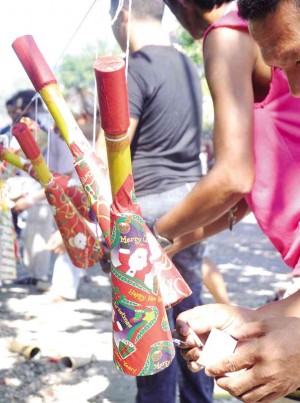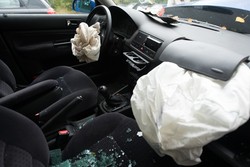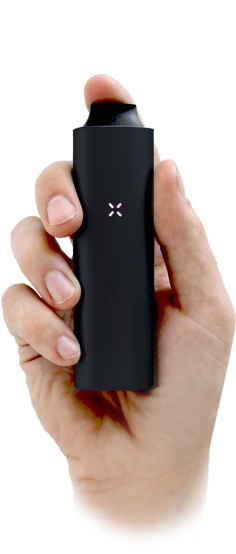The BSF nabbed three Bangladeshi smugglers
Shillong, Jan 06: The BSF troops of BOP Bagli, deployed in South West Khasi Hills district of Meghalaya apprehended one Bangladeshi national identified as Karim Sheikh aged 12 yrs, s/o Md Mazid r/o Vill- Bagli, Ps- Tahirpur, Distt- Sunamganj (Bangladesh) while he was trying to cross the International Border from Bangladesh near BP No 1193/6-T. During search, party recovered Indian currency Rs. 6,200/-, Grameenphone recharge coupon-200 Nos @ 50/- per coupon from his possession. In another incident on 03rd Jan 2014, troops of BOP Lailong deployed at East Jaintia Hills distt of Meghalaya also apprehended one Bangladeshi national identified as Doynal Abdin aged 21 yrs, s/o Abdul Malik, r/o Vill- Sonarton Basti, Ps- Kanaighat, Distt- Sylhet (Bangladesh) while he was trying to cross the International Border from India near BP No 1315/2-S. During search, party recovered 24000 Nos Betel nut and 01 Mobile Phone with 01 BD SIM from his possession. During last week, BSF troops on Meghalaya border apprehended 03 Bangladeshi nationals and 02 Indian national and seized 204 Btls Liquor, 05 Nos Cattle heads, Forest produce and other contraband items worth over Rs. 2 Lacs while being smuggled out from India to Bangladesh
http://spnewsagency.com/the-bsf-nabbed-three-bangladeshi-smugglers/
Lear MoreIllegal tobacco dealers held
MUSCAT: The Preliminary Court, on the appeal of the Public Prosecution at Jaalan Bani Bu Ali, sentenced a man to two months in jail and deportation from the country, besides slapping a fine of OMR100, for selling cigarettes that did not match with the specified standards. The seized goods were also ordered to be confiscated. The accused was arrested by the Directorate of the Consumer Protection in South Sharqiyah governorate during an inspection drive which the directorate carried out to find if some cigarettes that did not comply with the standards and non-smoking tobacco norms were being sold in violation of the Consumer Protection Act. In another case, the court slapped a fine of OMR1,000 against a Bangladeshi national and ordered his deportation for selling non-smoking tobacco and also ordered confiscation of the goods. Similarly, the court also issued three judgments against three other Bangladeshis accused of violating the Consumer Protection Act and related orders regarding sale of Afzal and Paan Bahar non-smoking tobacco, Maher Light and Maher Gold cigarettes. These goods were seized from South Sharqiyah and the accused were fined OMR600.
Lear MoreStudy: 40% of cigarettes consumed in West Bank sold ‘illegally’
RAMALLAH (Ma’an) — A large percentage of cigarettes consumed in the Palestinian market are made from local tobacco and sold through informal means, a local study has showed. The study, by Alpha International for Research, Polling and Informatics, suggests that about 45 million cigarette packs are sold illegally in the West Bank every year, which means the Ministry of Finance is losing 400-450 million shekels a year in customs taxes. In addition to not passing through customs, this means that the majority of cigarettes are not subject to tests by the ministry of health nor to the placement of warning messages on packages. The study found that 84 percent of consumers who use illegal cigarettes smoke local tobacco. They either buy tobacco and roll it themselves, or buy homemade cigarettes packaged in nylon sacks or simple boxes. These cigarettes, according to the study, are either smuggled, or packaged manually from tobacco produced by Palestinian farmers mostly from the northern West Bank.
http://www.maannews.net/eng/
Two Pakistani smugglers shot dead in Punjab: BSF
Amritsar, January 04: BSF personnel shot dead two Pakistani smugglers along the India-Pakistan border in Punjab after the duo fired on the troopers when challenged, a spokesman of the paramilitary force said Saturday. The gunfight took place late Friday night near the border outpost Gulgarh in Amritsar sector, 30 km from here. Border Security Forces troopers recovered the bodies of the smugglers Saturday after fog cleared in the area. Four kg of suspected heroin, one pistol and ammunition was also found at the spot. BSF officials said that troops were on high alert following inputs of smuggling from the area. A BSF spokesman said that BSF troopers at Gulgarh observed some suspicious movement of the Pakistanis near the border fence and ordered them to stop. “But they (the Pakistanis) did not pay any heed and opened fire at the BSF troopers,” he said, adding the BSF men returned the fire, killing the two smugglers.
Lear More

Law banning ’crackers seen boost to smuggling
BOCAUE, Bulacan—As expected, the industry that profits from fireworks and firecrackers has objected to a government plan to ban their sale and use. Celso Cruz, president emeritus of the Philippine Pyrotechnic Manufacturers and Dealers Association Inc. (PPMDAI), said on Friday the ban would only empower illicit fireworks and firecracker traders. He said the prohibition would restore the underground market that thrived before the government passed Republic Act No. 7183 in 1992 to regulate the manufacture and sale of firecrackers and other pyrotechnic devices. He also said people who could no longer use firecrackers may resort to firing their guns during the New Year’s Eve revelry, increasing cases of indiscriminate firing. Two children in the Ilocos region were killed by stray bullets on Dec. 31, 2013. Cruz said the government had banned the sale of piccolo and the fireworks trade centered in Bulacan province had abided by that rule. But piccolo is smuggled from China and has been distributed widely despite the law, he said.
This was a problem plaguing the Bureau of Customs, he said, but the campaign against firecrackers was attributing firecracker injuries to the legitimate fireworks businesses in Bulacan. Bocaue has been host to 300 fireworks stalls that operate on the days running up to New Year’s Day. The stalls also cater to other occasions all year round, from weddings to fiestas.
http://newsinfo.inquirer.net/557305/law-banning-crackers-seen-boost-to-smuggling
Lear MoreAnti Counterfeit Market for Food and Pharmaceuticals Expected to Reach US$79.3 Billion by 2014
According to a new market research report, ‘Anti Counterfeit Market for Food and Pharmaceuticals (2009–2014)’, published by Markets and Markets, the global anti counterfeit market for food and pharmaceuticals market is expected to be worth US$79.3 billion by 2014, with an estimated CAGR of 8.6% from 2009 to 2014. The North American market is expected to account for nearly 62% of the total revenues. Browse more than 66 market data tables with 22 figures spread through 250 pages and in-depth TOC on “Anti Counterfeiting Market”. http://www.marketsandmarkets.com/Market-Reports/anti-counterfeit-packaging-advanced-technologies-and-global-market-129.html
Early buyers will receive 10% customization on this report.
Enquiry before Buying @http://www.marketsandmarkets.com/Enquiry_Before_Buying.asp?id=129
Increasing cases of counterfeiting have resulted in implementation of anti counterfeit technologies. Anti counterfeit technologies are of two types namely authentication packaging and track and trace packaging technologies. North America holds a major share of the global anti counterfeit market. Asia has the highest growth rate due to untapped market and significant level of counterfeiting. Europe has a lower growth rate due to a relatively lower number of cases of counterfeiting.

Ohio is third US state to tighten laws on airbag counterfeiting
Ohio has joined Connecticut and New York in passing legislation that makes counterfeiting of vehicle airbags a felony. The law (HB 177) prohibits the manufacture, import or sale of a counterfeit or non-functional airbags, or devices that cause the vehicle’s diagnostic system to inaccurately indicate that the vehicle is equipped with a functional air bag, and increases the penalty for improper replacement of a motor vehicle air bag if the violation results in bodily injury or death. Under the new law, persons found to be distributing fake airbags will be charged with a fifth-degree felony on their first offense, moving up to a fourth-degree felony if convicted again or if their actions result in bodily harm. Each installation or sale will be counted as a separate offense.
Lear MoreCounterfeit Cosmetics, Fragrances-Hazardous to Your Health
You see what appears to be your favorite brand name eye shadow, eye liner, or fragrance for sale at a flea market or on an unfamiliar website. You notice the price is lower than what you normally pay at your favorite retail store or through an authorized online dealer. Before you hand over your hard-earned money, though, keep this in mind: It could be counterfeit, and—in addition to buying something that’s not the real deal—you are also risking your health by buying and using products that may contain substandard or even dangerous substances.
The National Intellectual Property Rights (IPR) Center—of which the FBI is a partner—wants you to know that the volume of all sorts of counterfeit cosmetics and fragrances coming into the U.S. is definitely on the rise…that’s according to our industry partners as well as law enforcement. Why is this happening? Because the Internet has given counterfeiters widespread access to customers, and because criminals increasingly view dealing in counterfeit personal care products—as well as other knock-off consumer goods as well—as a relatively low-risk crime since many of the perpetrators are located outside of the U.S.
Lear MoreSavanna Tobacco refutes cigarette smuggling charge
HARARE – There were reports last week that Savanna Tobacco was smuggling cigarettes into South Africa and that the company was making millions of dollars through the illegal trade.
DN: There have been accusations in the South African media that Savanna Tobacco is involved in the smuggling of cigarettes to South Africa. Please give us your comment on this.
ST: The accusations are patently false.
There is no iota of evidence by the media in question to back up this fictitious story. One Stephen Botha, head of Forensic Security Services (FSS), telephoned Savanna’s general manager in South Africa at the beginning of December promising “revenge” for the arrest of two of his service providers in Zimbabwe for espionage. Upon further investigation, FSS and Botha have been proven to be service providers for a major competitor of ours.
http://www.dailynews.co.zw/articles/2014/01/02/savanna-tobacco-refutes-cigarette-smuggling-charge
Lear More
Fake tobacco vaporisers a health risk, warns Ploom
A US manufacturer of tobacco vaporisers and e-cigarettes has warned that counterfeit copies of its products could be harmful. San Francisco-based Ploom has developed portable vaporisers – colloquially known as ‘vapes’ – that heat rather than burn tobacco and markets them as a “redefinition” of tobacco use. Unlike e-cigarette products these products use real tobacco rather than liquid nicotine. The firm is careful not to make any claims for the products in terms of being healthier than smoking or a way to quit the habit, for fear of falling foul of health claim regulations, but notes that the product produces no smoke.
http://www.securingindustry.com/fake-tobacco-vaporisers-a-health-risk-warns-ploom/s111/a1930/
Lear More


